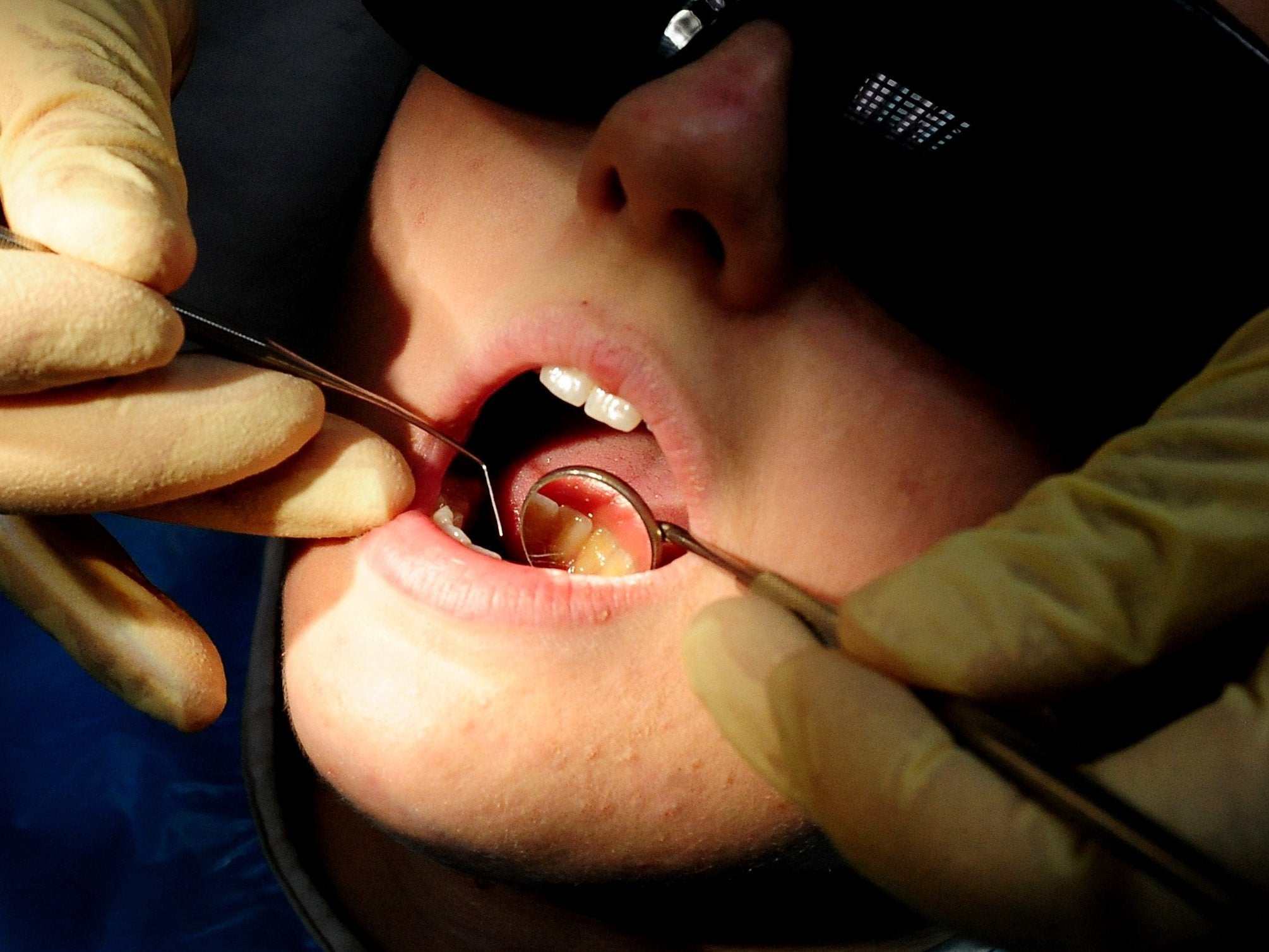Fears vulnerable being deprived of treatment as fines of £100 for ticking wrong box soar in NHS 'hostile environment'
Ten-fold increase in £100 fines for misclaiming free dental care coincides with two million fewer treatments to eligible low-income and vulnerable patients, according to British Dental Association

Your support helps us to tell the story
From reproductive rights to climate change to Big Tech, The Independent is on the ground when the story is developing. Whether it's investigating the financials of Elon Musk's pro-Trump PAC or producing our latest documentary, 'The A Word', which shines a light on the American women fighting for reproductive rights, we know how important it is to parse out the facts from the messaging.
At such a critical moment in US history, we need reporters on the ground. Your donation allows us to keep sending journalists to speak to both sides of the story.
The Independent is trusted by Americans across the entire political spectrum. And unlike many other quality news outlets, we choose not to lock Americans out of our reporting and analysis with paywalls. We believe quality journalism should be available to everyone, paid for by those who can afford it.
Your support makes all the difference.A government “hostile environment” for misclaimed free prescriptions and dental care is being scrutinised by auditors after it was claimed vulnerable patients are being fined £100 for ticking the wrong box on forms they struggle to read.
The National Audit Office has announced it is “undertaking an investigation into penalty charge notices in healthcare”, including the numbers issued and whether they are overturned.
Ministers say the measures help prevent fraud, but the British Dental Association (BDA) says patients who may have a learning disability or difficulty reading are too often fined £100 for ticking the wrong box on forms that are confusingly laid out.
More than 400,000 fines were issued for last year for people claiming exemption from dental fees, with more than a million charges when prescriptions and other exemptions are included.
Numbers of fines have rocketed – up 10-fold by 2017-2018 from the 33,887 issued in 2012-2013, the BDA said. It also claims government figures, released under the Freedom of Information Act, show 90 per cent of appeals are successful, suggesting officials are being unjustifiably heavy-handed.
It added that dental treatment for patients who are exempt from fees dropped by two million, or 24 per cent, in the space of four years – sparking fears vulnerable and low-income groups are being deliberately scared away to keep costs down.
Around a third of patients are exempt from NHS fees, depending on the type of benefits they are on, and the BDA says densely typed forms and the rollout of universal credit have made things more confusing.
“This investigation is welcome news,” said Charlotte Waite, chair of the BDA’s England Community Dental Services Committee.
“Yes, we need a system to protect taxpayers’ money, but that does not mean constructing a hostile environment for patients, many of whom have complex needs.
“An aggressive policy that hurts those who most need the NHS requires real scrutiny.”
The learning disability charity Mencap also welcomed news of the investigation and called for the National Audit Office to push for timely action on the harmful policy.
Mencap head of policy Dan Scorer said people with learning disabilities need to be supported to look after their teeth.
“Being unfairly hit with fines is a huge source of unnecessary stress and worry and can discourage people from visiting the dentist when they need to, causing a vicious circle of bad dental health,” he added.
An NHS Business Services Authority spokesperson said that of more than 1.5 million charges handed out in the last 12 months 79,098 had been overturned - but did not say how many were appealed in total.
"We welcome the National Audit Office investigation and will demonstrate there remains a need to identify and tackle NHS fraud and losses where patients claim exemption to which they have no entitlement," they added.
" This costs the NHS millions of pounds each year, money that could be better spent on patient care."
Join our commenting forum
Join thought-provoking conversations, follow other Independent readers and see their replies
Comments